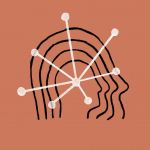Volvo first to integrate Google’s Gemini into cars for natural communication

Volvo will become the first automaker to install Google’s Gemini artificial intelligence system in its cars. Now drivers will be able to have more natural conversations about their vehicle, get help with translation, navigation, and searching for specific places. They will even be able to ask artificial intelligence questions about the car’s user manual.
According to Volvo representatives, the new technology is designed to reduce the “cognitive load” on the driver so they can focus on the road. Drivers will be able to use Gemini to send messages, get directions, play music, and perform all those functions that Google Assistant previously provided. The main difference is that now users won’t have to use artificial robotic commands. Instead, they will be able to rely on Gemini’s natural language processing capabilities.
As part of the expanded partnership, Volvo will also serve as one of Google’s reference hardware platforms for developing and testing future automotive technologies. This means that Volvo cars will receive “new features and updates” from Google before they are added to the main codebase.
Well, it seems that integrating Gemini into Volvo cars could be an important transition from mechanical interfaces and basic voice assistants to full-fledged conversational artificial intelligence systems in the automotive industry. Which potentially reduces driving distractions, lowers accident rates, and increases safety.





